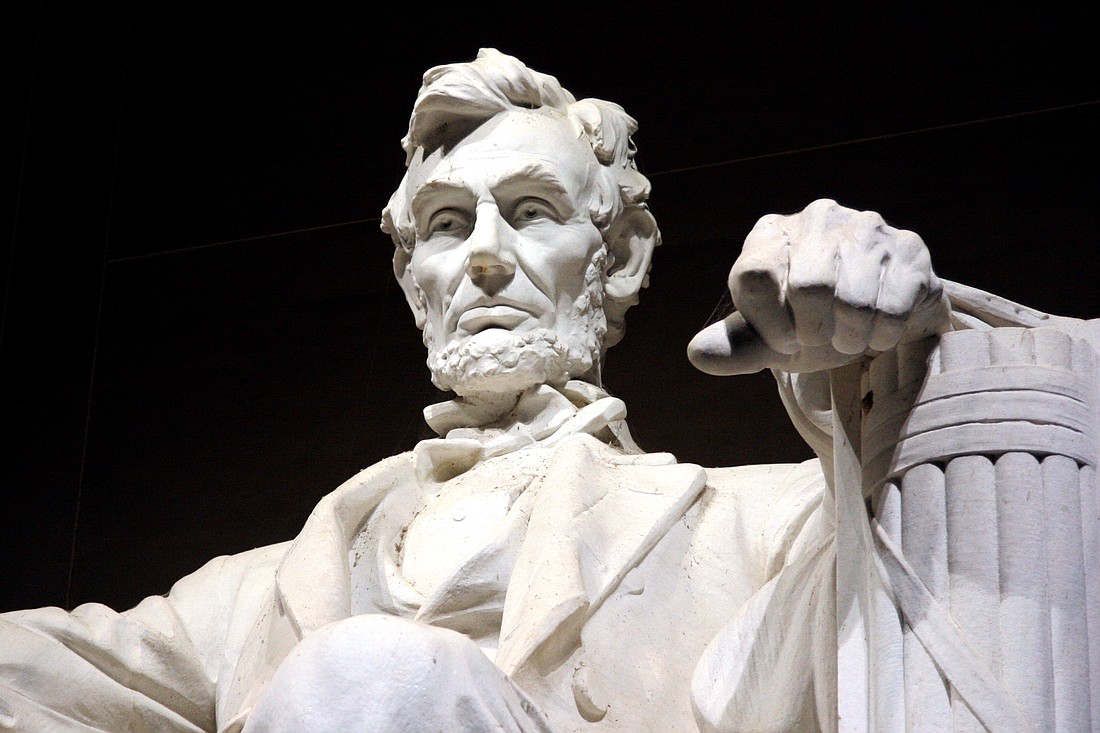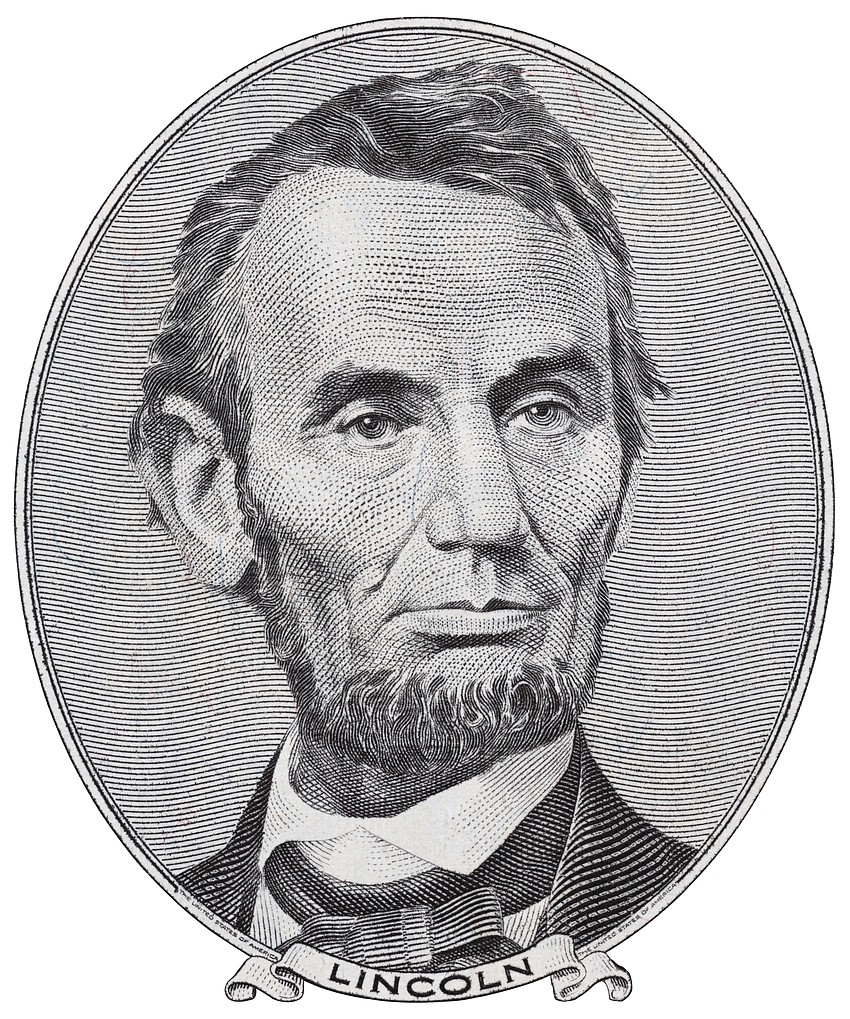- April 16, 2025
-
-
Loading

Loading

It’s hard to overlook Abraham Lincoln.
For starters, the 16th U.S. president signed the Emancipation Proclamation Jan. 1, 1863 that ended slavery in the country. It’s also well known Lincoln was physically hard to miss, an imposing six foot four — the tallest of the 46 U.S. presidents. And, of course, he was so lauded for telling the truth the world-famous nickname Honest Abe lives on 159 years after he was assassinated.
What is sometimes overlooked with Lincoln — despite the 16,000 books written about him — is the soft set of skills he learned, and then exhibited, about leadership throughout his life. This is the message Louis Masur, a Lincoln expert and Distinguished Professor of American Studies and History at Rutgers University in New Jersey, recently delivered in Southwest Florida.
Masur was a keynote speaker for a Sanibel Captiva Trust Co. Speaker Series event held in mid-March. Masur’s talk, “Lessons of Abe Lincoln: How Effective Leadership Can Change the World,” was given at the Tribby Arts Center at Shell Point in Fort Myers. (The Sanibel Captiva Trust Co. hosts an annual speaker series; another speaker this year was U.S. Olympic swimmer Rowdy Gaines, who spoke about his 1984 gold medals and his 30 years covering swimming for NBC Sports.)
Sure, Mausr said in a virtual interview before the event, Lincoln “saved the union and he freed the slaves, but what were the dynamics that made him such an incredible leader during such a divisive and obviously partisan time? How was he able to accomplish the things he was able to accomplish?”
Masur has researched, taught and spoken about other major historical figures. beyond LIncoln. A week before he was in Fort Myers, Masur delivered a lecture at an event in Sarasota entitled “Hamilton vs. Jefferson: The Rivalry that Shaped America.” (That event was hosted by the Observer Media Group, publisher of the Business Observer.)
But Lincoln is Mausr’s No. 1 educational and leadership muse. Some of the specific leadership lessons in Lincoln’s life, Masur says, include:
Education on a specific topic was critical to Lincoln’s success, says Masur. This, despite his father being illiterate and not too supportive of young Abe’s penchant for reading. This also came in the face of Lincoln growing up poor on a dirt-floor cabin. “But his love of learning,” Masur says, “played a pivotal role in his ability to lead.”

Masur cites an example: Lincoln had no military experience when he was inaugurated as president March 4, 1861. “His only military experience was as a volunteer in Black Hawk war,” Masur says. “And he had joked that the most military combat he saw was to be attacked by a swarm of bloody mosquitoes. That's a quote from him. So what does he do? He becomes president and he starts reading. We know from slips he took out from the Library of Congress, he starts reading military strategy books, he reads elements of military strategy, he starts studying up.”
Lincoln used that education to be a hands-on commander-in-chief, Masur says, as evidenced by his correspondence with generals.
Lincoln’s diplomatic nature in regard to executing good leadership, says Masur, isn’t about negotiating treaties but instead in knowing when to "fire and when to hold back.”
Consider, for instance, says Masur, what Lincoln did, or wrote, after the Battle of Gettysburg. The bloody three-day battle in south-central Pennsylvania left the Confederate States and Gen. Robert E. Lee ailing and in retreat. U.S. Army Major Gen, George Gordon Meade, leading the North, made what has since become a well-dissected potential tactical error, Masur notes, in not pursuing Lee.
“The next day, Lincoln writes a letter to Meade. And I have it in my files, I have it loosely sort of memorized, where if you look at his letter, he's congratulated (Meade) on the victory. And then (Lincoln) says how disappointed he is that he did not pursue Lee. And if only he had pursued Lee, he would have conquered Lee's Army then and there, and the war would be over. And it makes Lincoln heartsick…to think we had victory this close to our grasp.”
But, says Masur, Lincoln — on purpose — never sends the letter. He does the 1863 version of counting to 10 before hitting send.
“He writes it, he gets it out. And he puts it away in a file,” Masur says. “This is a great example of leadership. That to chastise his general then would do no good. It would be counterproductive. But he gets the vent in this letter. There are countless examples like this.”
Masur, in the interview and in his presentation, tells a story about Lincoln’s leadership the college professor says showcases the president’s unique ability to see the bigger picture.
Masur sets the scene: It’s December 1862. The war is going terribly for the North. And only a month earlier, Lincoln’s party lost dozens of seats in the U.S. Congress. “And that’s when he announced he’s going to issue an emancipation proclamation,” Masur says. “He's being vilified by his political opposition. He even writes at one point in December of 1862, he says, quote, ‘if there is a worse place than hell, I am in it.’

Then Lincoln learns a friend from Illinois was killed in combat. He further learns his friend’s daughter, says Masur, “is suffering. She’s just heartsick from her father's death, perhaps even suicidal.”
The president writes the daughter a condolence letter. “And,” Masur says, “here's the key line: he writes ‘you are sure to be happy again.’ That's what he says, you're sure to be happy again. He says, in effect, that he has known grief. And only the older you get do you realize that you get through it, you come out the other end. I might add that Lincoln’s son, Willie, died earlier that year in the White House.”
“I just think it's remarkable,” Masur adds. “And I think it’s tied to his ability to know a great leader has to get outside of themselves.”
Another leadership lesson from Lincoln, stems, Masur says, from his ability to stick to his principles — no matter the situation. This goes back to the 1864 presidential election versus George McClellan, a former Union Army general. “George McClellan,” Masur says, “looks like he's going to win and Lincoln is (saying) ‘oh my goodness, if I lose, then all of this is for naught.’ And some people suggest to him that he should suspend the election. How can you have this election in the middle of a war?
“And he refuses,” Masur continues, “and why does he refuse? This is what he says: ‘We cannot have free government without elections. And if the rebellion could force us to forego or postpone a national election, it might fairly claim to have already conquered and ruined us.’”
“That is amazing, right? I mean, that was standing by your principles.”
Masur notes several other important leadership insights anyone can learn from Lincoln, such as quickly admitting mistakes; the power of self-deprecation to make people (employees) feel at ease; and a desire to sincerely listen to opposing viewpoints. Masur has written two books about Lincoln, and another book about the Civil War. “I fell into the Lincoln rabbit hole, many, many, many years ago,” he says. “And I just never tire of reading about him and thinking about him."